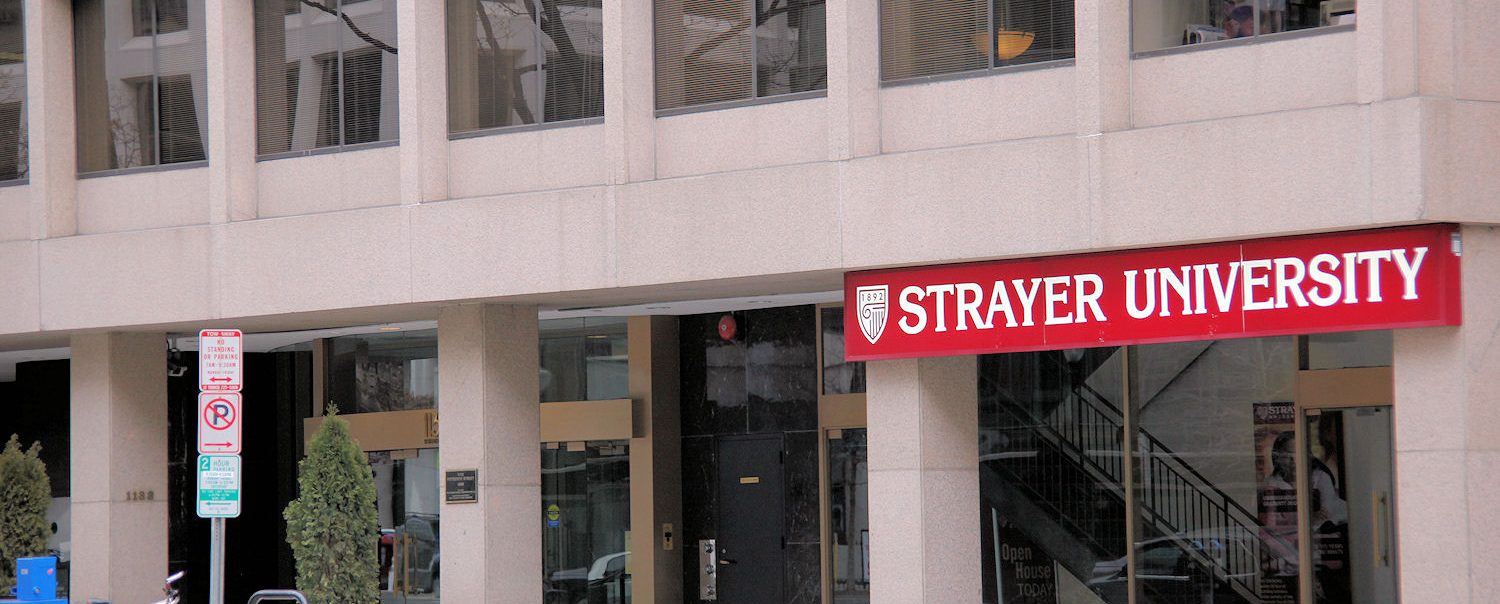
Articles
Editor’s Picks
Industry News
Enrollment at Some For-Profit Colleges Is Way Up. Many Expect that Trend to Continue.
By Henry Kronk
May 12, 2020
As the COVID-19 pandemic continues to affect education systems around the world, many have speculated about the medium- and long-term effects it will bring about. Some have worried that this time will allow for-profit colleges to regain momentum after facing regulatory pressure under the Obama administration. With the first quarter of 2020 in the books, one thing has become clear: enrollment at for-profit colleges is up. In some cases, it’s way up, with year-over-year double-digit percentage increases.
For-profit college Strayer University saw total student enrollment increase 11% compared to Q1 2019. New student enrollment at Capella University and Colorado Technical University (CTU) grew by 17% and 16.8%, respectively. Both Strayer and Capella are owned by Strategic Education, Inc. CTU is owned by Perdoceo.
New Enrollment At Some For-Profit Colleges Is Increasing by More than 10%
Things are also going well for Grand Canyon Education, Inc. The company used to own and operate Grand Canyon University (GCU) as a for-profit institution. Over the past few years, it spun off GCU into a non-profit and became a revenue-sharing university program manager. GCU is currently its primary client, and it receives 60% of the revenue generated by the institution. Enrollment at its partner institutions, including GCU, is up 5.8%.
It is unclear to what extent these trends are a result of the COVID-19 pandemic. Most reports of enrollment increases are for the period between January 1 and March 31 of 2020. While the novel coronavirus certainly had arrived in the U.S. in force by the end of that period, its effects were only just beginning to be fully felt.
These signals should be taken with a grain of salt for another reason. Most students do not enroll in college during the winter semester. It will remain to be seen whether this trend continues for the summer and fall 2020 semesters. Some for-profits, furthermore, are seeing stark enrollment declines. American InterContinental University (AIU), another holding of Perdoceo, experienced a new enrollment decrease of 14.2%.
Still, many for-profits project that the enrollment surges are just beginning.

Increases Will Likely Accelerate in the Coming Months
American Public University, Inc., a company that owns for-profits American Military University (AMU), American Public University (APU), and Hondros College of Nursing (HCN), also had a favorable Q1 report. The company expects enrollment at APU and AMU will increase between 8% and 12% for the second quarter of 2020.
At HCN, things are going even better. “For the three months ended June 30, 2020 (Spring Term), new student enrollment at HCN increased 56% year-over-year – a spring-term record for new student enrollment – and total student enrollment increased 14% year-over-year,” their Q1 report reads.
This growth has, of course, brought with it increased financial security.
Strategic Education Inc. owns numerous for-profit institutions, namely Strayer University and Capella University, which merged in 2017. The company said they had “fortress financial strength” in their first quarter report (linked above), which was supported by growing enrollment.
An Opportunity for Growth
This activity has not occurred passively. In April, the Associated Press reported on increased advertising, marketing, and recruitment activity at for-profit colleges, often targeting those furloughed, fired, or stuck at home because of COVID-19.
The article quotes Steve Gunderson, the president and CEO of the for-profit education lobby group Career Education Colleges and Universities. Gunderson expects mixed improvement in the industry. “Our schools are suffering just like everybody else in the American economy,” he told the AP. “The era of double digit growth in this sector is long gone. And it will not be coming back.”
While it may not be true for the sector, it is a reality for some schools in Q1 2020.
Student advocates worry that, with a growing recession and a decrease in academic oversight, for-profit colleges will have another resurgence, similar to that seen during the Great Recession. Throughout this time, and continuing through to the present, students at for-profits defaulted on their loans at significantly higher rates than others, recorded lower graduation rates, and saw worse post-graduation job outcomes.
In an opinion piece for the Hechinger Report, Aaron Ament (president of the National Student Legal Defense Network) and Debbie Cochrane (executive vice president of The Institute for College Access and Success) describe these concerns. They write, “a perfect storm is brewing for a rip-off revival to parallel the predatory for-profit college boom of the 2000s. And the most vulnerable students will inevitably pay the heaviest price.”
Featured Image: Wikimedia Commons.









No Comments